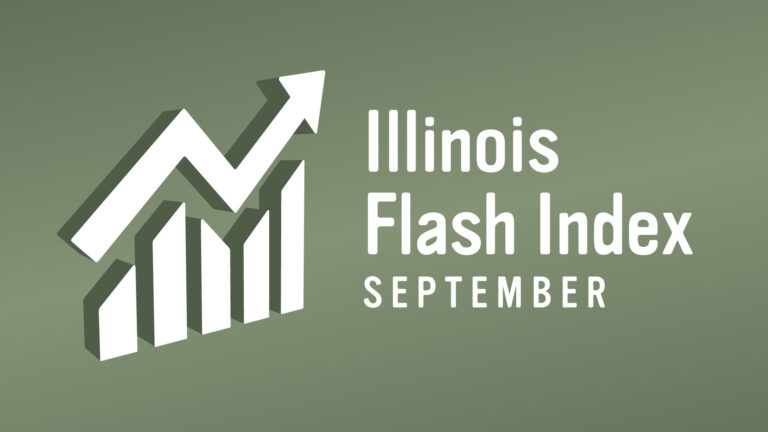URBANA – After two months of slight declines in the rate of growth, the Flash Index to the Illinois economy rose in September to 106.0. The latest reading shows a sixth straight month of economic growth in the state.
Illinois and the U.S. as a whole went through a recession induced by the COVID-19 shutdown last year, but it was a short one, according to economists. University of Illinois economist Fred Giertz says that’s reflected in Illinois’ return to steady economic growth, as shown by the Flash Index’s interpretation of state tax receipts.
“The Flash came back,” says Giertz. “It had been down slightly. Still strong growth, but it had down slightly for several months. And then, it came back up to 106.0, which is tied for the highest in the post-COVID era.”
The Flash Index measured the economy at 106.0 in June, 105.8 in July and 105.6 in August, before returning to 106.0 in September.
The Flash Index is now at an even higher level than it was before the COVID-19 shutdown. (It peaked at 105.7 in February 2020, then fell before 100 for the next 13 months.)
Giertz says that’s partly because the index is measuring some economic growth relative to the brief recession that the shutdown caused.
“The reason why the economy is growing so fast, both nationally and in the state of Illinois, is because now we’re comparing it… to pretty anemic kind of numbers (a year ago). But in addition to that, I think there’s real growth there.”
Giertz says it was a surprise to see the September Flash Index return to the June level of 106.0, given the concerns about the COVID-19 Delta variant.
“This suggests that the resurgence (of COVID-19 cases) was not as damaging as people thought at first,” says Giertz. “It also appears that (the wave of Delta-induced COVID cases) is receding now. So again, it may just be a blip in the overall recovery.”
The Flash Index is based on a weighted average of growth rates in Illinois tax receipts, providing a rapid early measurement of the Illinois economy.
Sales tax and personal income tax receipts for September were both up substantially compared to a year earlier. But Giertz says corporate tax receipts showed a phenomenal increase of more than 75%, the second-largest monthly total in state history. However, he says part of that increase may be due only partly to an expanding economy, and also due in part to a change in the pattern of monthly receipts.

